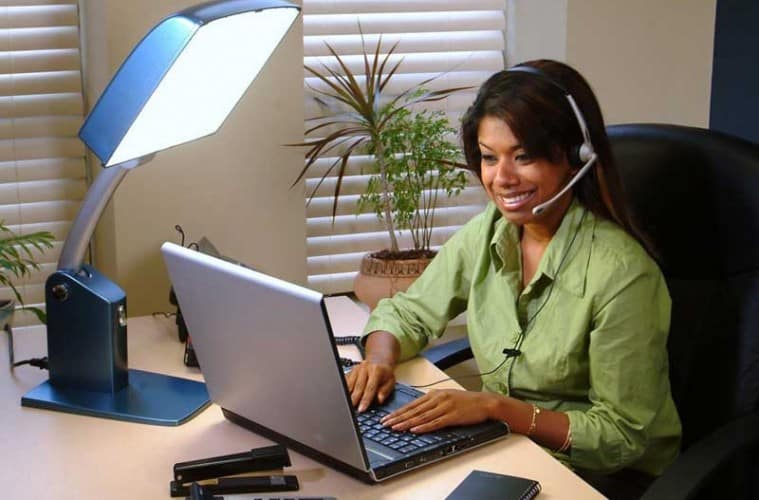Light Therapy Machine For Sad

The box gives off bright light that mimics natural outdoor light.
Light therapy machine for sad. Red light therapy device by bestqool 660 850nm near infrared led light therapy with timer 60 leds clinical grade home use light therapy lamp for anti aging pain relief 4 8 out of 5 stars 89 199 99 609 00. I prescribe it to my patients as we have a long and often cloudy winter and every single one has told me how much it helps their mood and energy. Light boxes come in a variety of designs including desk lamps and wall mounted fixtures. They re flat screens that produce full spectrum fluorescent light usually at an intensity of 10 000 lux.
This involves sitting by a special lamp called a light box usually for around 30 minutes to an hour each morning. Light boxes are the standard light system used for sad in clinical studies. During light therapy you sit or work near a device called a light therapy box. Light therapy lamps are often recommended for individuals who experience some type of seasonal depression.
I use a sad lamp myself and can vouch for its efficacy. Light therapy boxes for sad treatment are also known as light boxes bright light therapy boxes and phototherapy boxes. Light therapy is thought to affect brain chemicals linked to mood and sleep easing sad symptoms. Talk with your doctor first.
Sad is a type of depression that occurs at a certain time each year usually in the fall or winter. Bright light therapy is a very effective and well studied treatment for seasonal affective disorder sad. Bright light therapy involves sitting in front of a lamp known as a light box for about 20 to 60 minutes a day during the darkest months of the year. All light therapy boxes for sad treatment are designed do the same thing but one may work better for you than another.
Some people with sad find that light therapy can help improve their mood considerably. Light therapy may also work to combat depression risk and other conditions including jet lag. For those suffering from sad light therapy efforts have been clinically shown to work to alleviate. It has been found to help about 50 percent of.
















































